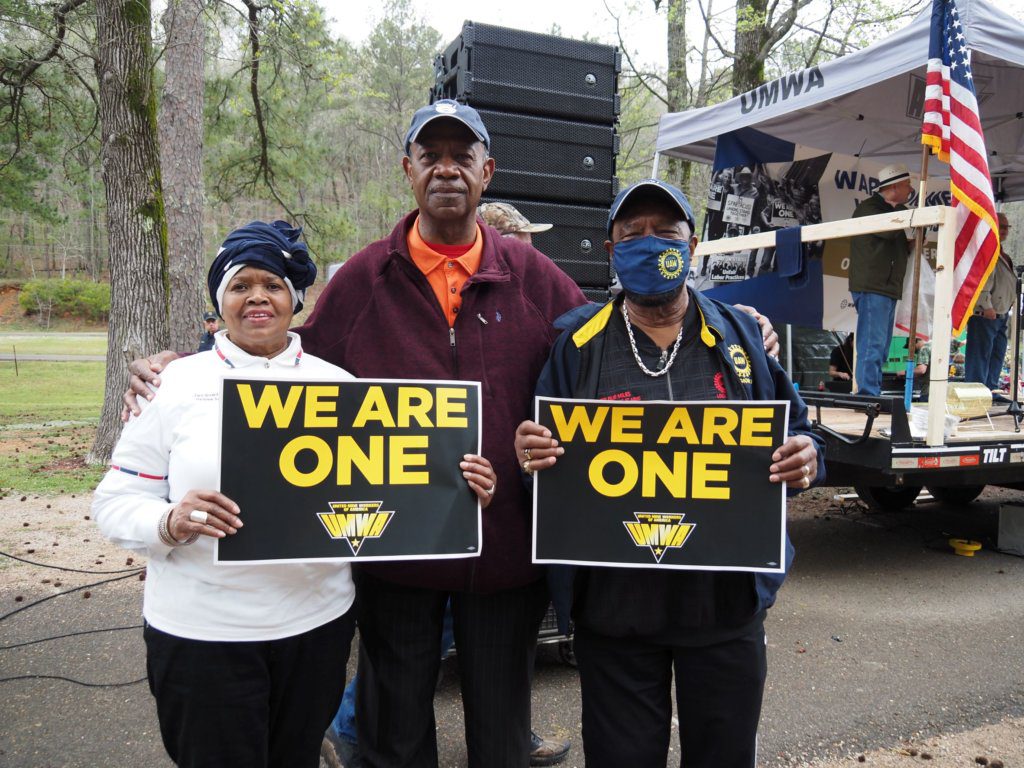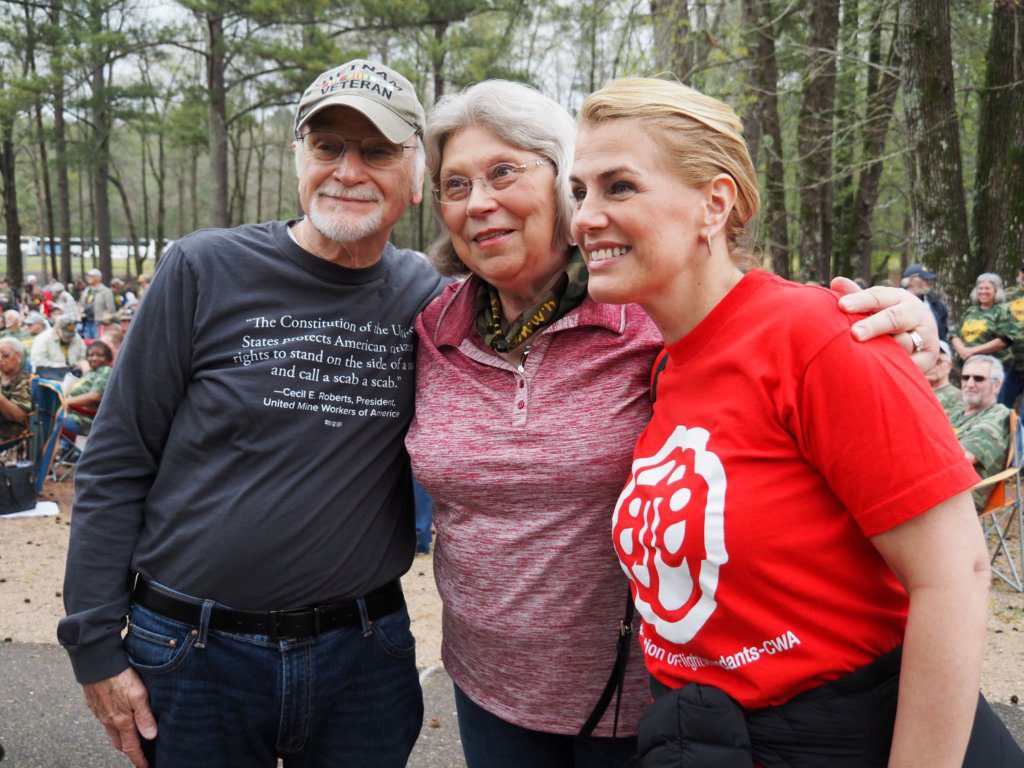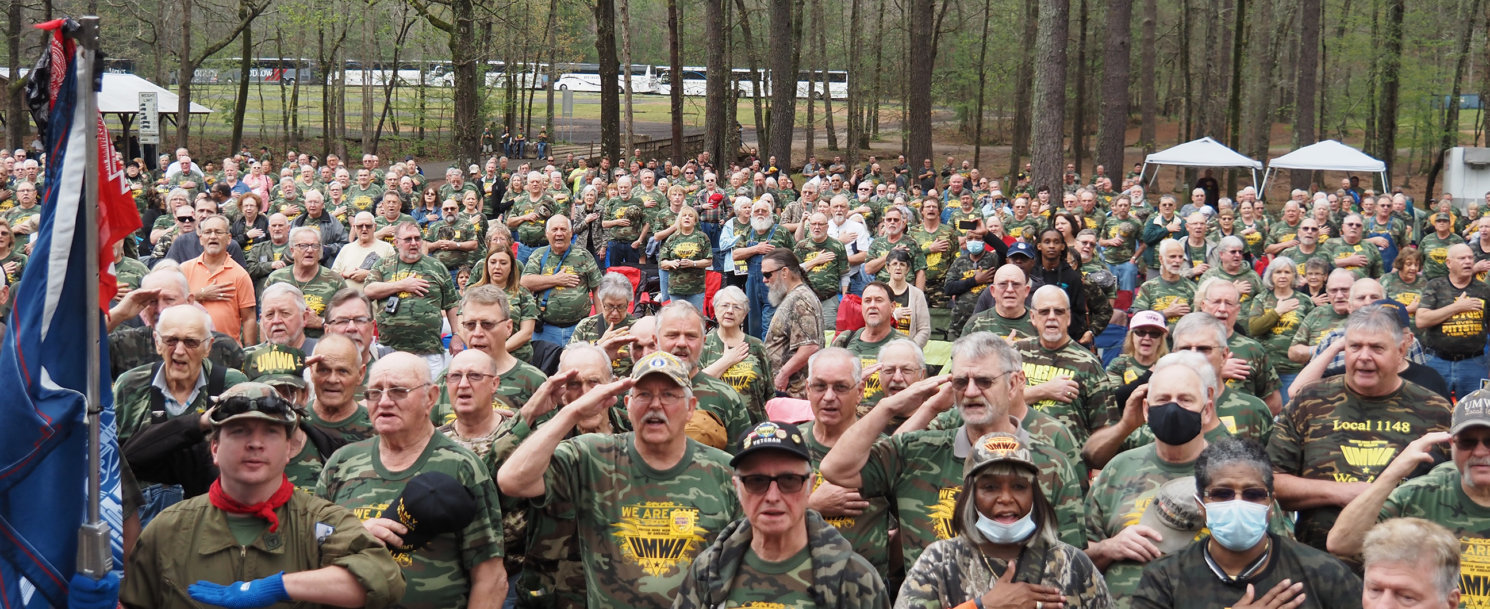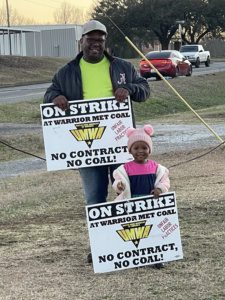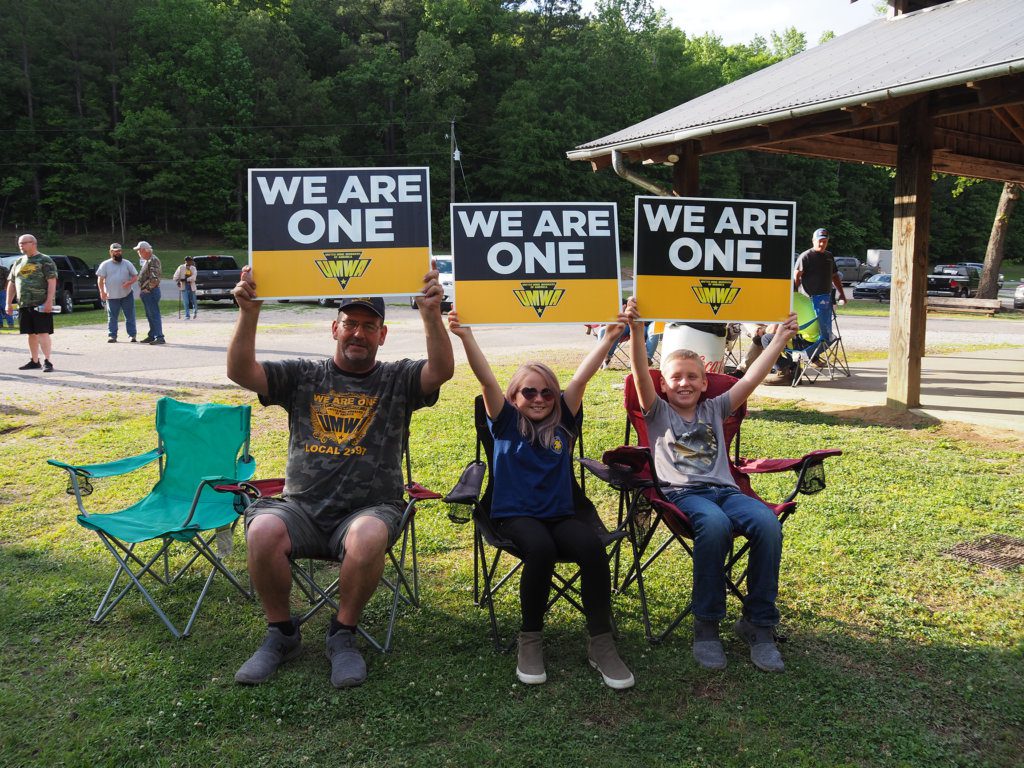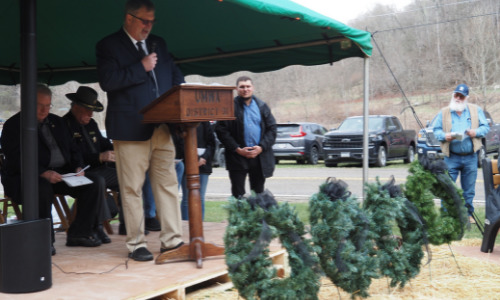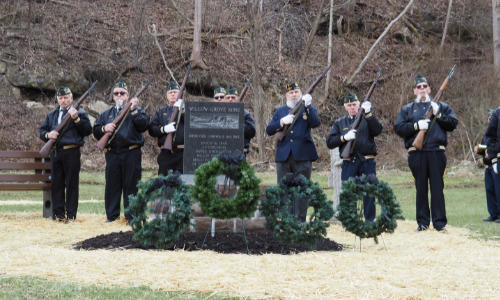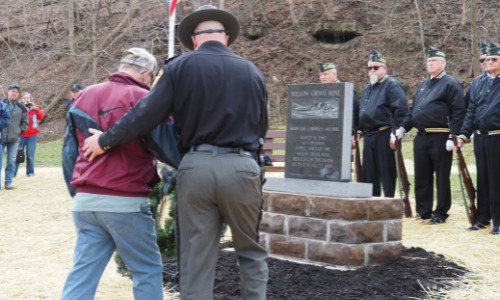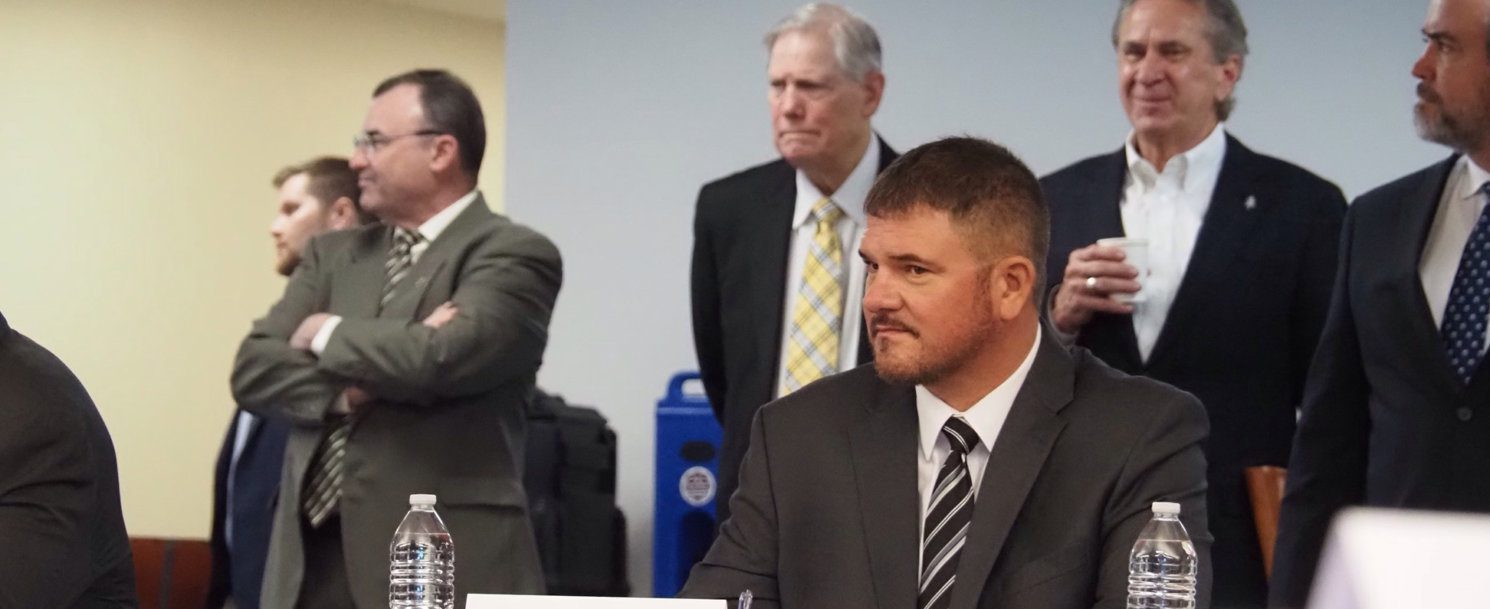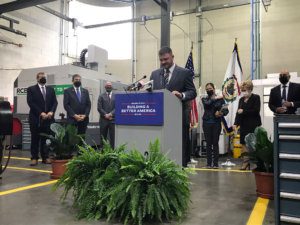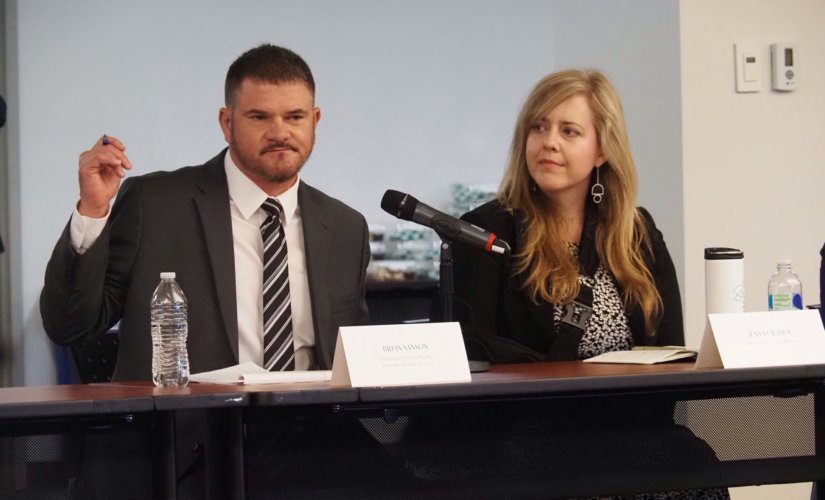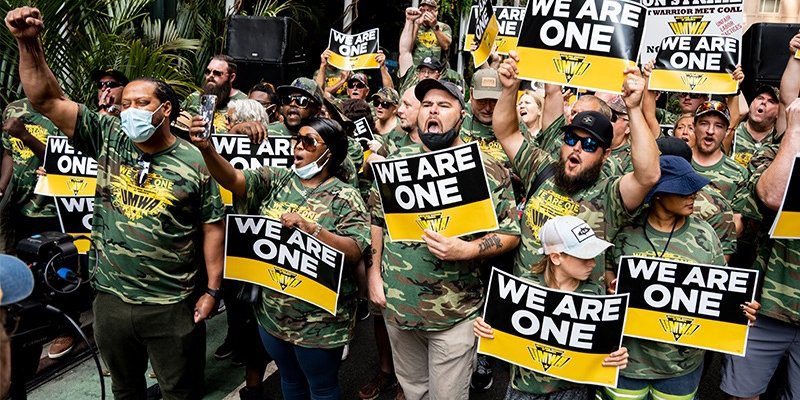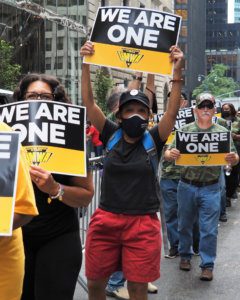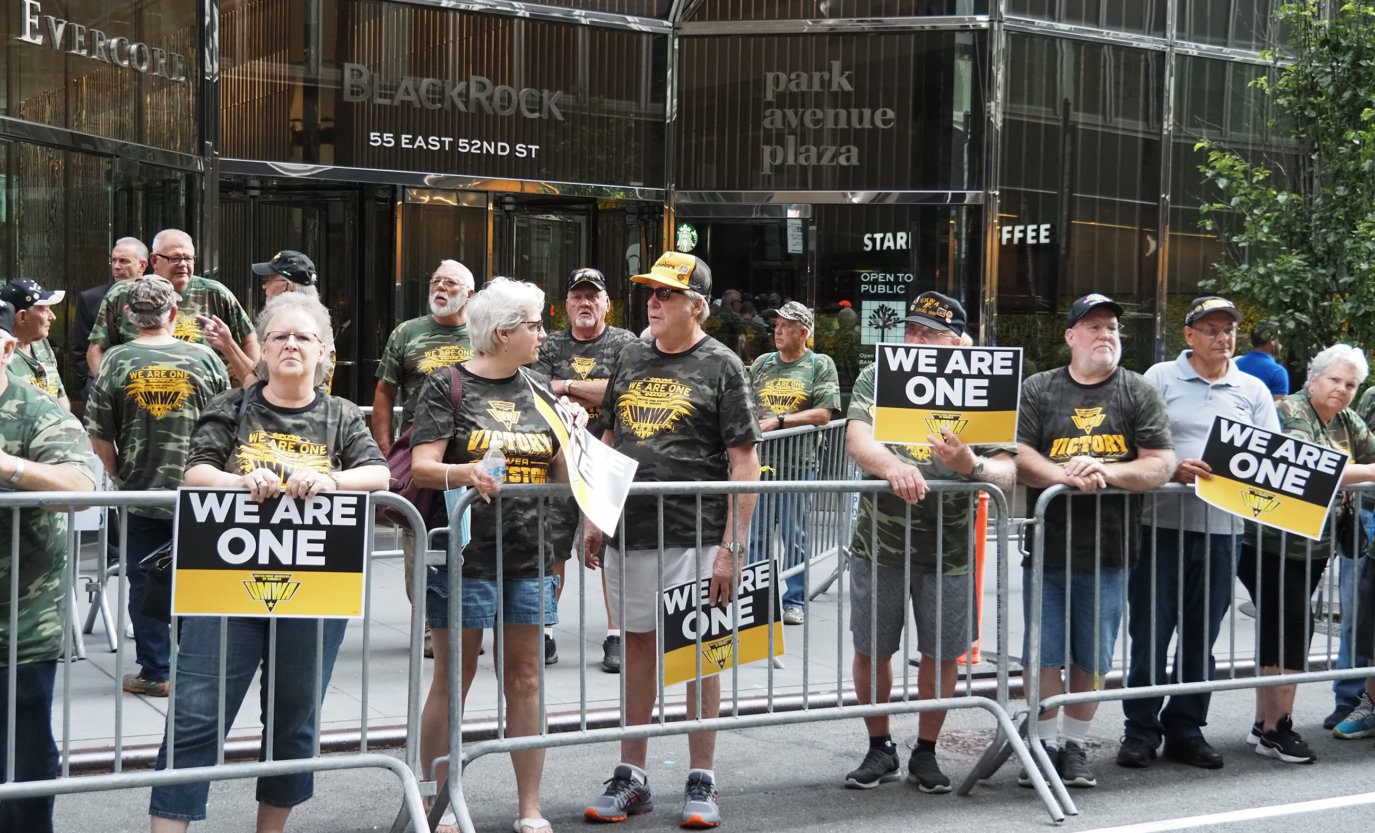SOURCE: NPQ
DATE: March 16, 2022
“It’s difficult to tell your children that you can’t do things because you are not at work right now, you are on strike…It’s not fair. They exploit our work. They work us on skeleton crews…Then we get to watch them sit in the office and make $4 million dollars a year,” Braxton Wright, a United Mine Workers of America (UMWA) Local 2368 member, testified before the Senate Budget Committee on Capitol Hill on February 17, 2022.
Wright is one of more than 1,000 coal miners in Alabama on strike against Warrior Met Coal, a company whose largest shareholder is BlackRock Investment Group, the world’s biggest asset manager.
Nearly a year after the strike began on April 1, 2021, the miners represented by UMWA are still fighting to restore concessions they took to help Warrior Met Coal emerge from the Chapter 11 bankruptcy restructuring of Walter Energy in 2015. As part of an agreement in federal bankruptcy court, asset management companies Blackstone, Apollo Global Management, and KKR bought the remnants of Walter Energy and were allowed to reject prior labor agreements, including union miners’ collective bargaining agreement and their retiree pension and healthcare agreement.
By 2019, these private equity firms had all sold their shares in Warrior Met and, as stated in a letter to investors from Senators Elizabeth Warren, Bernie Sanders, and Tammy Baldwin, “appear to have made off like bandits,” while a new batch of Wall Street firms —including BlackRock, with an almost 14% stake, and Vanguard, with an approximately 12% stake— now hold the largest shares of the company.
Today, UMWA is confronting this legacy of Wall Street firms’ initial restructuring and continued controlling investment in Warrior Met during their labor dispute. At a strike rally in Brookwood, Alabama, UMWA International President Cecil E. Roberts explained, “Warrior Met is the creation of a shadowy network of New York hedge funds and investment banks…The workers gave up more than $1.1 billion in wages, health care benefits, pensions, and more to allow Warrior Met to emerge from bankruptcy five years ago. The company has enjoyed revenue in excess of $3.4 billion in that time. But it does not want to recognize the sacrifices these workers made to allow it to exist in the first place.”
The strikers at Warrior Met are far from the only workers dealing with companies whose largest shareholder is a Wall Street fund. BlackRock and Vanguard are frequently referred to as two of the Big Three (along with State Street) in the literature on asset management capitalism, which has proliferated in the United States since the 2008 financial crisis.
While academic studies cite that “as of December 2018 one of Vanguard, BlackRock, or State Street was the largest shareholder in 438 of the S&P 500 companies,” Senator Bernie Sanders, in a Senate Budget Committee testimony last month, stated that today the Big Three “are major shareholders in more than 96% of S&P 500 companies. In other words, they have significant influence over many hundreds of companies that employ millions of American workers.”
“Interestingly enough, if you haven’t heard much about the power of these Wall Street firms, it may have something to do with the fact that a small number of Wall Street firms control about half of the newspapers in America,” Sanders pointed out.
As asset management capitalism flourishes and an increasing number of companies have Wall Street funds as majority shareholders, more workers and unions will be navigating industrial labor relations, like the UMWA has with the dispute at Warrior Met.
To meet these challenges, UMWA is building a model for organized resistance against Wall Street funds’ exploitation of workers. In the Warrior Met strike, UMWA must target both Wall Street’s Frankenstein assemblage of the company from the remains of Walter Energy, as well as continued investments by financial firms such as BlackRock and Vanguard. To pressure the company and Wall Street shareholders towards an equitable labor contract, the union has developed a strategic campaign with simultaneous local, national, and legislative actions, which offers a glimpse into the potential future of labor and social movements in an increasingly financialized economy.

Holding the Line at Home: Strategic Local Action
As underground coal mining continues to be one of the most dangerous jobs in the United States, safety continues to be a significant concern for strikers, who work near the location of “one of nation’s worst mine disasters” that killed 13 workers at the Walters Resources Mine No. 5 on September 23, 2001. Additionally, while Wall Street firms, including Apollo and Blackstone, have paid themselves and stockholders nearly $800 million in Warrior Met dividends, miners in Alabama strike to earn back the $6/hour pay cuts, longer hours, fewer holidays, and increased health care costs they agreed to as temporary measures to help Warrior Met become profitable.
“The strikers only want something fair,” UMWA International District 22 Vice President Mike Dalpiaz explains. “To get the mine going after restructuring, we wanted to get the membership back to work. But after making the company hundreds of millions of dollars in the last five to six years, it’s time to come back for the concessions that miners took to help Warrior Met.”
Today, the miners in Alabama have come back in full force. In June, the union held what they believe is the largest labor rally in the history of the state, and the UMWA Warrior Met strike has now become the longest strike in Alabama’s history. However, maintaining a labor dispute for nearly a year hasn’t been easy for the workers or the union.
Strikers have reported company violence, including vehicular assaults on the picket line. Roberts issued a statement June 2021 saying, “We have members in casts, we have members in the hospital, we have members who are concerned about their families and potential of violence against them if they come to the picket line.”
Four months later, in October 2021, a Tuscaloosa County circuit judge delivered a blow to strikers’ ability to engage in otherwise legal, protected concerted activity by issuing a restraining order against UMWA picket activity due to allegations of escalating violence from picketers. UMWA released a blistering statement against the ruling as an “assault on the rights and freedoms of working families that has been the government’s hallmark during this strike. It contains provisions that are unconstitutional and it reinforces the notion that Americans – at least in Alabama – are not free to enjoy their rights to free speech and free assembly.”
Such rulings set a dangerous precedent for restricting workers’ right to speak out on wages, hours, working conditions, and Unfair Labor Practices, as afforded under the U.S. Constitution and the 1935 National Labor Relations Act. Moreover, described as “a rare incursion by a local court into a private-sector strike—an activity protected under federal labor law for nearly a century,” the restraining order underscores the continued local challenges tenacious strikers have faced during a protracted strike in the traditionally anti-union Deep South.
Dalpiaz confirmed that Alabama State Police are essentially functioning as “private security” to usher temporary workers onto the mine property, a move that significantly reduces the strike’s economic impact on Warrior Met. Roberts emphasizes the effect this has also had on the local and state economy. “Alabama State Police have been working on the public’s dime to escort out-of-state strikebreakers who have been brought in to take Alabama taxpayers’ jobs. Where is the sense in that? We have seen no protest or investigation by our state’s leaders about this clear misuse of taxpayer dollars.”
Despite obstacles from Alabama courts, politicians, and police, strikers continue to hold the line nearly a year after the strike began. Dalpiaz emphasizes that the union believes fostering grassroots involvement and action is key to success. “We have kept this strike in Alabama alive by making membership the focus. At the end of the day, they have to live with this contract.” These workers remain the foundational, guiding force for a labor dispute that has taken on national dimensions.
“We Are Everywhere”: Taking the Struggle to the National Stage
Far from the Warrior Met mines in Alabama, UMWA picketers march outside the Manhattan headquarters of company’s larger shareholder, BlackRock, donning camouflage shirts emblazoned with the union logo and the phrase, “We Are Everywhere.” For months, they have been a steadfast presence at Wall Street firms who have invested in Warrior Met, including BlackRock, Apollo, and KKR.
Phil Smith, UMWA Director of Communications and Governmental Affairs, explains that having a Wall Street fund as the largest shareholder of a company alters industrial labor relations, in part, because it “frees the company up from the supervision that might come from traditional human shareholders.” As the UMWA merges more traditional strike tactics in Alabama with national and legislative approaches, the miners picketing Wall Street give a human face to the material impact that Warrior Met’s disembodied investment structure has on workers’ lives.
The national expansion of labor actions is described by Dalpiaz as an escalation of grassroots worker power. “On the ground, we speak with members and have rallies once a week to keep members informed and plan together what we think we need to do across the whole United States to pressure all stakeholders. You go where they are. The whole purpose is so they know we are here – everywhere across the country.”
On November 3, 2021, in an act of peaceful resistance during a rally outside BlackRock headquarters, 75-year-old Roberts and five other Mineworkers sat down and blocked traffic. They were arrested by the New York City police. Two weeks later, UMWA coordinated simultaneous national and global protests outside BlackRock offices on Wall Street; Melbourne, Australia; and across the United States, including the Alabama State Capitol, Denver, Washington, D.C., Boston, Newport Beach, and other locations.
While other unions and workers have joined in solidarity with UMWA, actions to pressure Wall Street firms have not been without their challenges—or surprises.
Smith explains that as UMWA coordinates their actions on Wall Street and fund management offices across the country, they have to be aware of who, or what, is the target at each location. “Renaissance Tech is top ten shareholders of Warrior Met, but when planning a picket, we found that in their New York headquarters, the only people working there are hired to service the computers…Decisions on when to buy and sell stocks are no longer made by humans.”
Smith recognizes that, under these circumstances, national and international strategic union action must be designed to influence the financial market. “Fund managers aren’t making day-to-day decisions on what happens with an investment that includes Warrior Met; a computer is. Some of these locations are just supercomputers and a few people who operate them. The only thing the computer cares about is how much money it makes. If it isn’t it making money, it can stop the behaviors and engage in new behaviors.”
Automated computer trading means that the strike needs to invoke financial losses that not only pressure Warrior Met’s human CEO and Board of Directors to come to an equitable labor agreement but also change the programmed behavior of a computer operating within certain parameters to buy and sell stocks. In November 2021, Warrior Met reported that the strike had cost them $16.2 million in increased costs over the previous quarter. However, with increased coal prices over the same period, even this multi-million dollar expenditure has not resulted in a drop in company stock value, nor has it significantly altered computer (or overall human shareholder) behavior.
Beyond the traditional image of strike picket lines and rallies, addressing computer algorithms is not typically one of the first components envisioned in a strategic union campaign during a labor dispute. However, for workers at a growing number of companies whose stocks are largely controlled by Wall Street funds, perhaps it may be. Recognizing this, the UMWA has not only taken its fight to Wall Street but also to the legislative powers that have the potential to regulate proliferating asset management capitalism.

Follow the Money: Wall Street Legislative Reform
“There should be some level of responsibility from Wall Street,” states Smith. Through the bankruptcy process “Apollo [Global Management] molded Warrior Met into what it is, and we are still dealing with this investment structure. How do you fight that? The only way is through legislation and better regulation of what private equity and asset management firms are doing.”
Smith’s statement highlights the importance of policy changes that are not only applicable to the current Warrior Met strike but also could have wider ramifications for the growing number of U.S. companies whose largest shareholder is a Wall Street fund. Recognizing this, UMWA has taken the fight to the halls of legislature, garnering political allies such as U.S. Senators Elizabeth Warren, Sherrod Brown, and Bernie Sanders to speak out against Wall Street firms’ impact on workers and for regulatory legislation such as the Stop Wall Street Looting Act. This legislation would prioritize worker pay in the bankruptcy process; create incentive for job retention; and end the immunity of private equity firms from legal liability when companies they own break the law.
On an AFL-CIO panel, Warren, who co-sponsors the Stop Wall Street Looting Act, explained, “What happed at Warrior Met is what happens when these billion dollar Wall Street firms come to town. They suck as much as they can out of these companies to line their own pockets and it comes at the expense of worker and communities. The fact is that Warrior Met workers are on strike today because private equity gave them a bad deal.”
While Wall Street firms claim passive power over corporate America, Sen. Sanders is quick to counter this assertion. During the Senate Budget Committee hearing on “Wall Street Greed and Growing Oligarchy in America,” he explains that the Big Three of asset management firms — BlackRock, Vanguard, and State Street — say “they are not involved in the day-to-day decisions of the companies they own, but let us be clear, these three companies own nearly one-fourth of votes at shareholder meetings, leveraging their power to influence CEO compensation, stock buy backs, environmental commitments, mergers, and pension benefits.”
***
It is this type of power that UMWA is pressuring BlackRock to assert over Warrior Met as its largest shareholder to reach an equitable labor contract. With just three asset management firms holding “about 80% of all indexed money” in 2020 and currently managing “a combined $21 trillion in assets, which surpasses the GDP of the U.S.,” Wall Street firms maintain a tremendous amount of voting power over major companies that employ millions of workers.
Through their strike at Warrior Met, UMWA miners provide U.S. workers with a model of multilevel labor mobilization that can combat underregulated asset management capitalism and harness private equity’s potential to sway corporate boards or management during labor disputes. It’s a fight that might have its epicenter in little Brookwood, Alabama, with a population of 2,000, but it has ramifications for 12,000,000 workers in the United States employed by companies who have Wall Street funds as their largest shareholders. The strikers’ struggle shows workers across the country how they can fight back against the power of asset management capitalism — and plan to win.
To support union strikers at Warrior Met, visit UMWA Strike Aid.
Written by: Dr. Ericka Wills



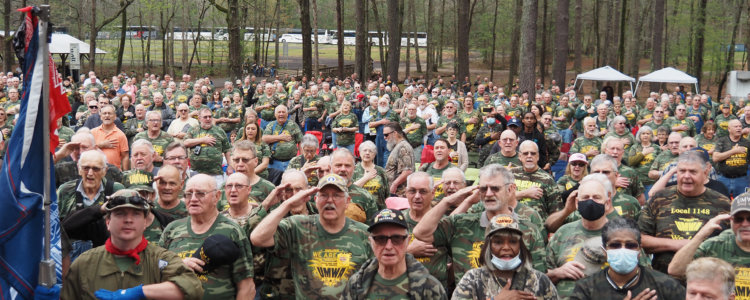
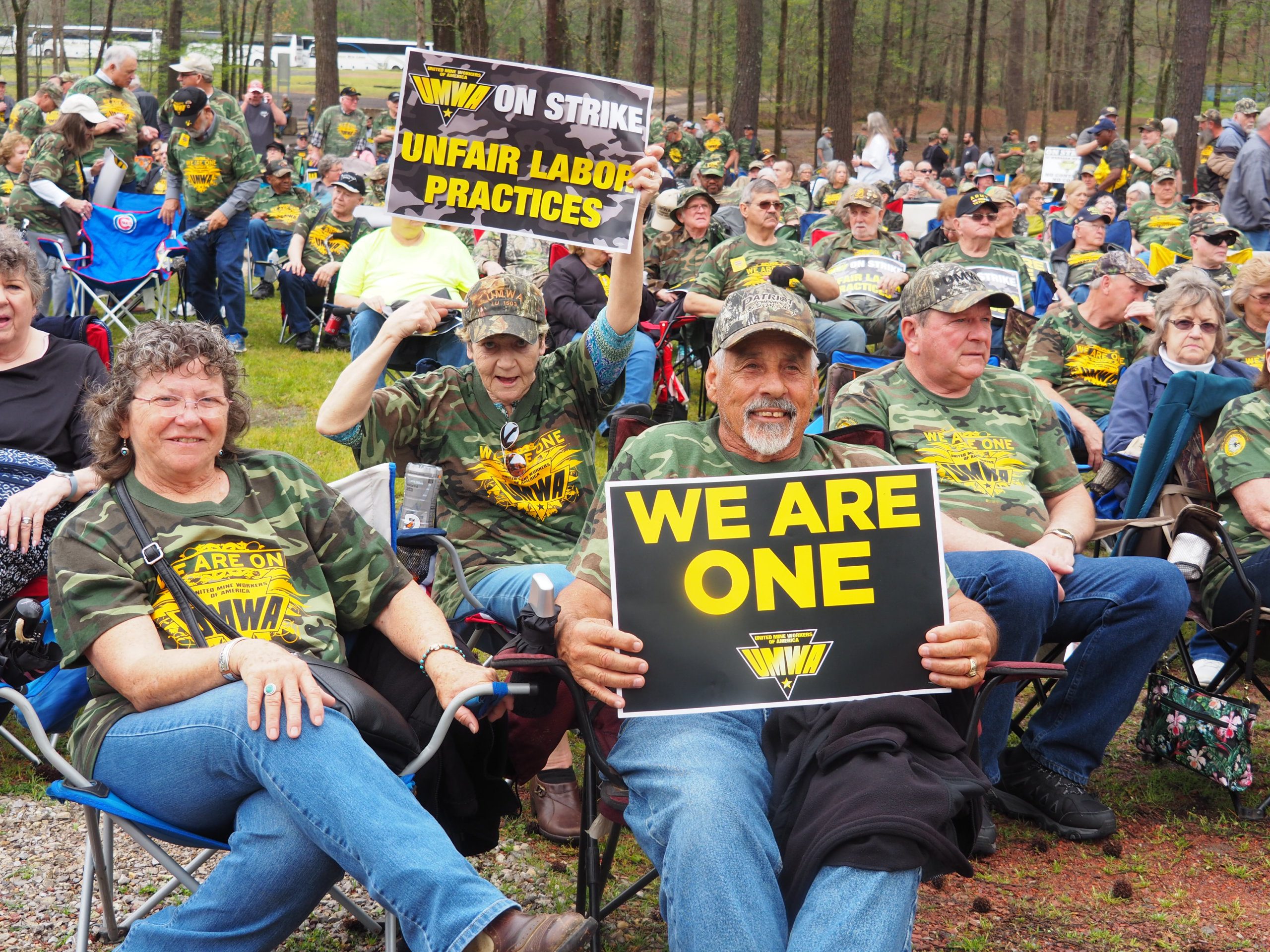
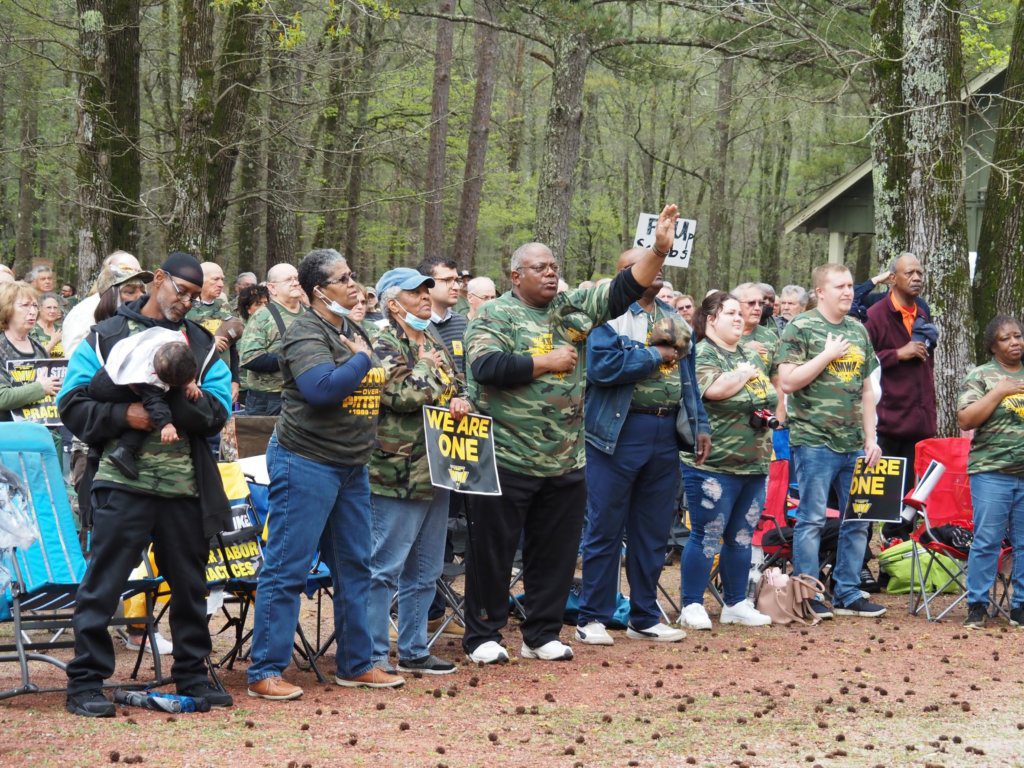
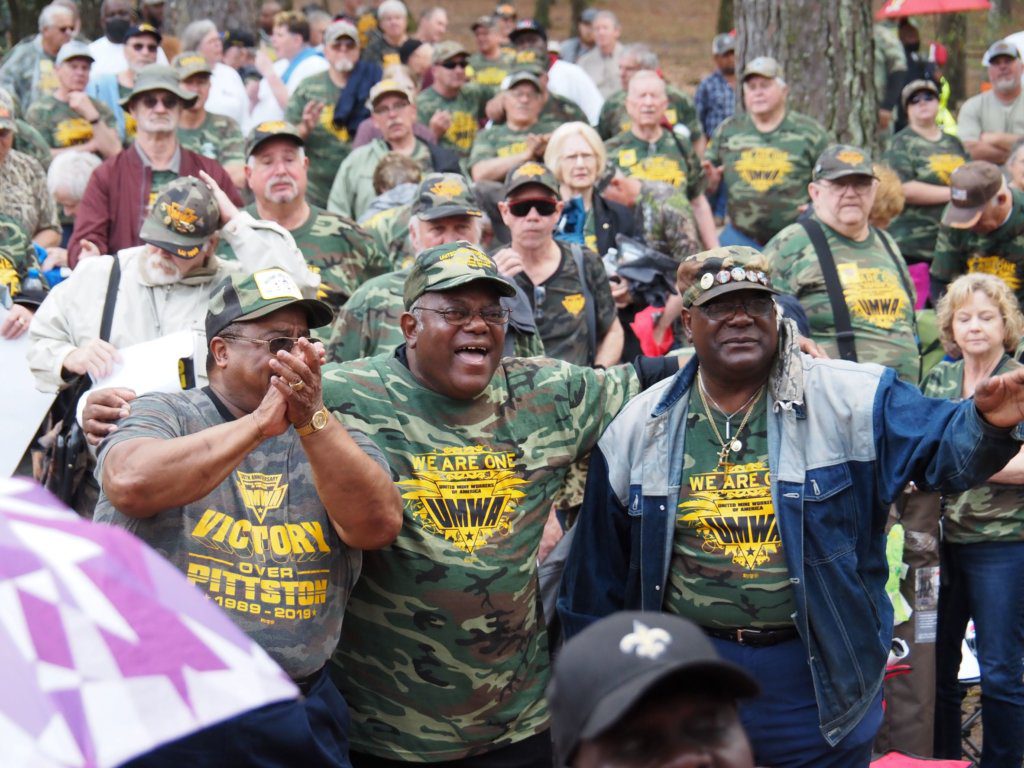 It was a really lovely affair, suffused with the familial quality that is so common at UMWA events and bolstered by the appearance of the strikers’ many supporters. I’ve lost count of how many of these rallies I’ve attended by now. My coverage of this story has
It was a really lovely affair, suffused with the familial quality that is so common at UMWA events and bolstered by the appearance of the strikers’ many supporters. I’ve lost count of how many of these rallies I’ve attended by now. My coverage of this story has 